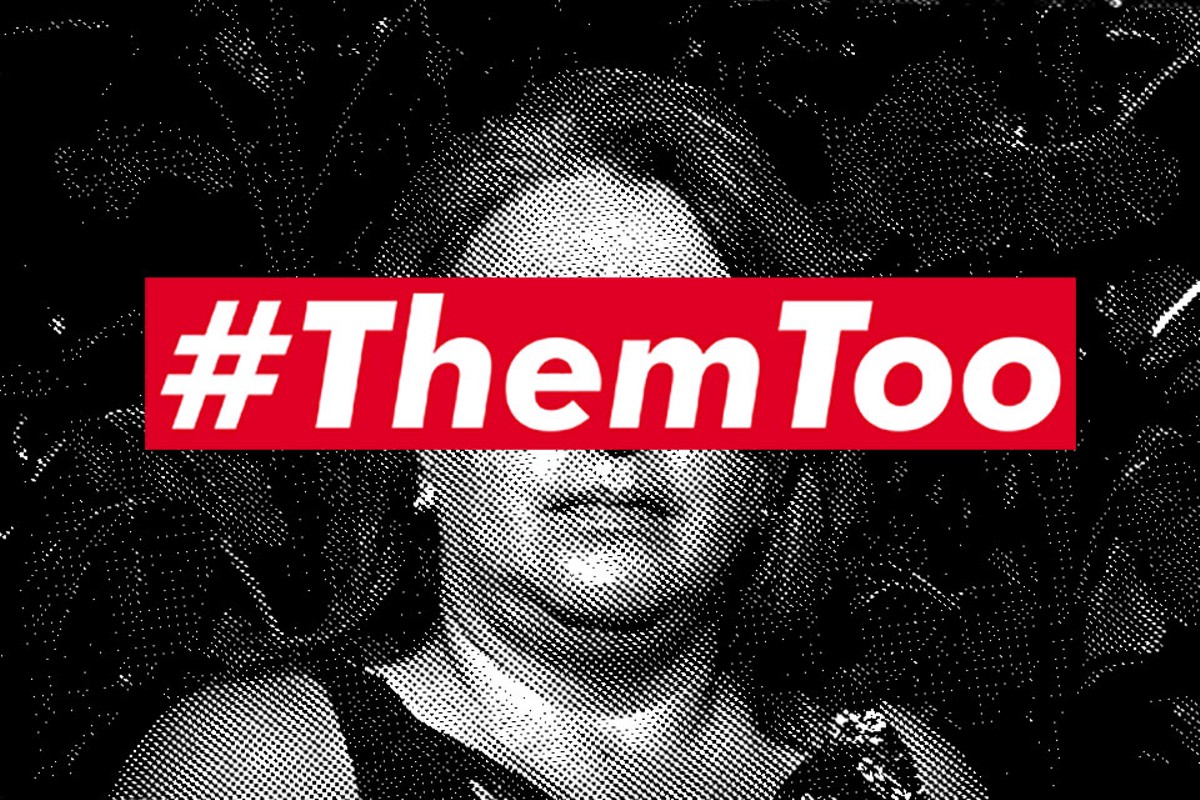The nickname that some local attorneys and county employees have given to Jerrod Mahurin, the prosecuting attorney of St. Francois County, isn't professional, and it certainly isn't nice: Douchebag McBully. But then again, these people say, neither is Mahurin.
Behind the nickname are allegations that stretch back years. People who have worked for the 38-year-old Democratic elected office holder say he has created a toxic atmosphere in the prosecutor's office, especially for female employees. Lisa Davidson, a longtime secretary in Mahurin's office, says that not only did Mahurin show her a picture of a penis, but that another employee, also a secretary, showed her a different penis photo with contact info on her phone suggesting it came from Mahurin.
It's not just Davidson. Another former employee interviewed for this story also says Mahurin has made suggestive remarks about his female employees' bodies and commented on their sex lives. In some cases, the atmosphere spilled into areas outside the office. During an overnight training session in 2014, Davidson says Mahurin took a group of female secretaries to a strip club and asked them to keep their hotel doors unlocked. A secretary later confided to the former employee that the clerical staff decided to stop attending the training sessions because of his behavior. (Mahurin denies each allegation.)
The allegations go beyond sexual harassment and a hostile work environment. People who have found themselves in Mahurin's crosshairs — a group that includes not only secretaries but also a Farmington police officer and the former county auditor — say he wields his office's power to exact favoritism and enact retribution. Mahurin's six-year tenure as prosecutor has left St. Francois County divided: There are those on his good side, and everybody else.
About an hour's drive south from St. Louis, the county is mostly rolling farmland and rural townships, and like any small town, the rumor mill plays an important social role. Everyone talks to (or about) everyone. The county seat, Farmington, is its largest city, with around 18,000 residents, and for the lawyers and county employees who pass through the downtown courthouse, it is truly a small pond. That smallness has kept the mill churning.
At the same time, it's also worked to Mahurin's advantage. The prosecutor is a big fish here, and Mahurin has gained an intimidating reputation. Citing Mahurin's powerful position, some of the sources who spoke to the RFT did so on the condition of anonymity. These sources say they fear what he's capable of.
"He's so vindictive," a local attorney says. "Like the mafia."
Davidson says she's choosing to speak out as a whistleblower after years of concern over Mahurin's behavior. "Things are getting worse," she says.
When Davidson first agreed to speak to the RFT, she requested anonymity, citing similar concerns as other people interviewed in this story. She said that she suspected Mahurin was retaliating against her for not reciprocating his advances or responding favorably to his suggestive remarks, and that her job duties were being improperly restricted. In late March, she filed a formal discrimination complaint against Mahurin, but even then, she didn't want to risk losing the job she'd held for the last eighteen years.
On June 12, Mahurin agreed to sit down with the RFT for an interview, during which he repeatedly denied the allegations against him. The next day, Mahurin called Davidson into his office and fired her.
Mahurin joined the St. Francois County government in 2008, as an assistant prosecutor. It was a job he landed after a few years in private practice following Oklahoma City University School of Law.
"He was new, he was young, I just figured he had a lot to learn," Davidson says, describing her first impressions of her future boss.
At first, she had little interaction with him. But in a small office of around sixteen employees, word traveled quickly, and the youthful assistant prosecutor was the persistent subject. Davidson says she tried to ignore it.
"The girls had been talking about it. I knew something was going on with him," she says. "At the time he hadn't even said anything to me, and so that was fine. No big deal. I've tried to just put it out of my mind, thinking, 'If I don't participate, and I don't act with them, if I just do my job, I'll be left alone.' That didn't happen."
For her, the trouble began two years after Mahurin started, in 2010. She recalls overhearing a secretary laughing about a dick pic she'd received. The secretary passed the phone over. There was, indeed, a penis. Davidson says the name and contact number belonged to Jerrod Mahurin.
"I've seen it," she says. (Mahurin denies that he's ever sent an explicit photo of himself to a prosecutor's office employee.)
Two years later, in 2012, Mahurin's career in county government took off. That year, Governor Jay Nixon appointed Mahurin St. Francois County prosecuting attorney. The governor's move was a response to a vacancy after the elected prosecutor, Wendy Horn, was appointed associate circuit judge. Mahurin, then in his early 30s, had just four years as an assistant prosecutor under his belt, all in the same small town.
Over time, though, Davidson says Mahurin's behavior continued to blur boundaries.
She claims to have overheard him during a training trip at the Lake of the Ozarks bragging about how many women he'd slept with other than his wife. She says he also showed her an X-ray picture on his phone that featured a man's visible penis "that went under his knees."
In another incident, which took place around 2016, she says Mahurin approached her during a staff-wide gathering at a bar celebrating the end of a jury trial. "He wanted to know if I'd ever had a threesome," she says. "And then he asked me about my little hands. He put his hand up to mine, and told me how little and pretty my hands were."
Not knowing how to respond, Davidson says she excused herself for a smoke and went home. "It was just so creepy. It threw me for a loop."
In other instances, "he made comments about him being good in bed, having a big cock," says Davidson. "He once made a comment [that] he was good and that there's no complaints."
In another incident, the second former employee allegedly heard Mahurin remarking to a secretary, regarding some work issue, "We can fight about this now, but we'll take care of it in the bedroom later."
This same source says that Mahurin was warned that his comments were inappropriate.
"I experienced him making comments and jokes and situations where he said stuff about a lot of secretaries," the source says. "Things like, 'Oh, you know her boobs are fake,' or, 'She had an affair.'"
To be clear, Davidson says that in some cases Mahurin's statements and overtures have been reciprocated by other employees. But not by her.
"Women have sent pictures back," she says. Still, despite her refusal to play along, she claims Mahurin continued to make suggestive comments to her. "I just never gave him anything to run with, I blew it off or ignored him or walked away," she says. "That was not me. I'm too old for that."
Three sources inside the office — Davidson and two other former employees — indicate there was discussion about an attempt to hold Mahurin accountable. In separate interviews, they independently described how a group of four secretaries had made plans to sue Mahurin in late 2014, even consulting an attorney. (The three staffers who discussed the incident with the RFT were not a part of the group considering litigation.)
According to salary records, over the next two years, the clerical staff enjoyed significant raises, with several staffers seeing their yearly paychecks grow by more than $6,000. Ultimately, no lawsuit was ever filed.
That's even though Mahurin's conduct allegedly persisted. The source who claims they heard Mahurin making suggestive comments about his employees' bodies says they also witnessed the prosecutor continue to abuse his power over the secretarial staff. At one point, the source says, a secretary refused to deliver a check to Mahurin's home, protesting, "Well, I just know that since his wife isn't there, he's going to try to make me have sex with him."
Davidson says the secretary also confided in her about same incident, expressing worry at the consequences of complying with — or disobeying — the prosecutor's orders.
Mahurin contends that the incident is a fabrication. In an interview, he says he would never ask a secretary to drop something off at his house.
The secretary, Spring Henson Gray, however, tells a different version of the story. While she says Mahurin did ask her to bring the check home, she insists she never suggested to anyone that he was trying to have sex with her.
"I have never been victimized," Gray says. "I've never had any issues with him, he's always been very fair. Not one of [the clerical staff] has been treated better than the other one."

Last month, Mahurin agreed to a sit-down interview with the RFT to respond to the allegations against him. He vehemently disputes the accounts of Davidson and other sources, countering that these allegations are coming from disgruntled former employees.
"I've had several employees that I have let go for various reasons that have said to me, unequivocally, 'I will do whatever it takes to take you down,'" he says.
Mahurin professes no knowledge of employees planning to sue him in 2014, and he says that the subsequent salary increases granted to the clerical staff were not inappropriate. (He points out that the salaries were approved by the county commission.) Responding to the individual allegations, Mahurin says the details are new to him, and that he'd never, as one source claims, been warned that his behavior had crossed a line.
"To hear that there is anybody that has ever thought about filing a sexual-harassment suit is completely surprising," he says.
Mahurin suggests that if there were grounds for a complaint in 2014, someone would have taken legal action. "My guess is, they probably didn't file any lawsuit because there's nothing there," he says. "How do I disprove a negative?"
Avi Kumin, a lawyer based in Washington, D.C., who has represented plaintiffs in sexual-harassment lawsuits, says that even with a lack of hard evidence — such as text messages, photos or recordings — the allegations circulating around the prosecutor's office fulfill the key elements of "severity and pervasiveness" that are usually featured in a sexual-harassment lawsuit.
"You can't look at any of these things in isolation," Kumin says of the accusations.
The fact that Davidson and other sources complaining about Mahurin's conduct weren't always the direct target also wouldn't necessarily hurt their case, Kumin says.
"If this was one instance, I'd say it's inappropriate but it would not in and of itself rise to the level of sexual harassment," Kumin explains. "But if this is coming within the context of unwelcome sexual comments about their bodies, sexual comments in general, sexual innuendo, sexual advances, and now on top of that there's this other instance where he's showing them sexual pictures, and it certainly adds to the sexual harassment that they're experiencing."
Kumin adds, "Any time you're getting to the dick-pic level, I would say that's probably severe."
But not everyone in the office believes Mahurin's critics. During Mahurin's interview, the prosecutor stated that he knew of several employees who wanted to add their perspectives on his tenure.
Indeed, days after interviewing Mahurin in his office, the RFT spoke with four clerical workers currently employed there. The staffers say they were not pressured by Mahurin to defend him. Each maintains that any sexual-harassment allegations are untrue, and all are adamant that Mahurin has never made sexual comments, pursued sexual relationships or sent explicit photos to their phones. These current employees say there's never been an organized effort, even an aborted one, to sue the prosecutor.
Tammy Clay, who's worked in the St. Francois County prosecutor's office for more than a decade, says that she's never witnessed or been the target of harassment, and that she is appalled by what she calls "slanderous" accusations.
"I can personally say that nothing has ever happened. I've never witnessed it, and I really can't add more than that," Clay says. "I think the office is run very well."
Natasha Kennedy, who joined the clerical staff in 2017, says Mahurin "has always been professional from what I've seen" and maintains that the allegations don't fit the boss she knows.
"I've never had any problems," she says. "I've never heard him speak to anybody in that manner."
That also goes for Henson Gray, who joined the prosecutor's office as a secretary in 2002. Davidson alleges that it's Henson Gray who showed her a dick pic with contact info that indicated it came from Mahurin's phone. But Gray denies ever receiving such a photo.
Stephanie Williams started working at the St. Francois County prosecutor's office in 1996. She got out in 2014, after less than two years under Mahurin.
"I didn't think he was experienced enough to be the prosecutor, and I think the power kind of went to his head," she says.
Williams provided the RFT with printouts of sixteen emails from Mahurin. The emails include threats of summary termination for those who had apparently made the mistake of crossing him — even in seemingly minor ways.
In a May 2013 email, Mahurin wrote, "It has come to my attention that some of you think that I have shown favoritism" as to whom received a previous email admonishment.
To Mahurin, this was a serious offense. "I will give you to the end of the day to express those concerns to me personally," he continued. "If you do not, I will assume you have no respect for me or my position and no longer need to work for me."
He added, "I will not tolerate insubordination in this office and I am tired of the childish games."
Six months later, Mahurin sent a second, similarly worded challenge to the entire office.
"It has come to my attention that one of you has disobeyed an order I gave with regards to the day we went to [H]otshots," he began in an email dated November 3, 2013. The outing, Mahurin wrote, was intended as a "teambuilding exercise" — even though it was held at Hotshots, a sports bar in Fenton, 50 miles away from the courthouse.
The trip apparently required utmost secrecy. In the email, Mahurin reminded the employees that he'd specifically told them "no one was to discuss any events regarding the day with anyone outside the office."
Williams says she remembers the day well. It was September 11, 2013. "He closed the office around 11 a.m.," she says. "There was a couple of us who didn't want to go, but we were worried that if we didn't go we'd be blackballed."
This email carried the subject line "office policy and protocol," a dry title for the several paragraphs of angry prose below. Mahurin wrote that someone had leaked information about the outing, blabbing to "a friend or family member" — and here he bolded and underlined the words — "that I would have docked your pay had you chosen not to attend." In the email, Mahurin doesn't deny making the threat.
The email continued, furiously. Mahurin wrote that the leak of "inner office communication" meant someone was trying to take "a shot" at him. But, he added, he would allow the person who'd leaked to come forward and address it with him personally.
"Since all of you are here today, I will assume that this problem will be rectified immediately," he wrote. "Should you choose to not tell me which one of you disclosed this message, when I confirm it, you will be fired immediately and I will contest your unemployment because of insubordination and cover up."
Today, to the RFT, Mahurin says he doesn't remember writing the email, insisting, "I don't send emails, and I don't send office-wide emails."
"If someone is making a claim that I sent a document that I did not send, I guess I'll have to speak with an attorney regarding defamation, or turning [sic] it over to another prosecutor for an indication of forgery charges," he says.
That "someone" is Williams, and she insists the email is authentic. She says she was also the leaker who spilled the details about the 2013 Hotshots outing, though she says it was by accident. She'd relayed her concerns about the trip to a family member, and, St. Francois County being as small as it is, word got back to a secretary, who then fed it Mahurin. His reaction scared her.
"I just figured it was a matter of time before I'd be gone," she says. She called in her remaining sick time and made her retirement official in 2014. "It was time for me to go."
It wasn't the way she'd planned on leaving, but compared to Davidson, she had it easy.
On June 13, 2018, Lisa Davidson arrived at the St. Francois County prosecutor's office for the last time. Before leaving her car, she turned on a small wearable recorder. She'd started bringing it to the office months ago, ever since she filed a complaint with the Missouri Commission on Human Rights. Such a complaint represents the first step toward obtaining the legal right to sue for employment discrimination. Anyone can make one, even (as Davidson had done) without a lawyer.
Summarizing her allegations, Davidson had written, "Jerrod Mahurin has had sexual relations with the staff [sic] because I have not I am being bulled and harassed by Jerrod and the women who had sex with him." According to a copy of the original document reviewed by the RFT, the complaint was dated and notarized March 22. On the same date, Davidson faxed a copy to both Mahurin and to the commission.
But there was a problem. In a letter sent to Davidson March 23, an intake officer confirmed that the commission had received her complaint but noted that the faxed document "had some issues and the charge is unledgable [sic]." The officer asked Davidson to send a clearer copy.
Three months later, though, Davidson was still waiting for the attorney she'd subsequently hired to submit an amended complaint to the commission. She also waited anxiously as an RFT reporter entered Mahurin's office on June 12 to confront him with allegations of misconduct, claims for which she was one anonymous source.
The next day, a Wednesday, Davidson was in a meeting with several other employees when Mahurin pulled her aside. He mentioned the human rights commission complaint.
"I need to know how that document got in my office," Mahurin asked her, according to a recording she shared with the RFT.
Davidson responded that she'd previously faxed her complaint to the office.
"OK, right," Mahurin said. "Whatever the reason being, that's fine. Well, I need to let you know that I have confirmed that there was nothing filed with the human rights commission. So, I don't know, this appears to be a false document that you tried to provide me with, and I don't understand what it means."
He continued, "Nonetheless, I'm terminating your employment immediately."
"OK," Davison said.
Mahurin told her to turn in her keys and ID cards. "Obviously," he said, "you'll be out of here as soon as you get that collected."
Davidson didn't protest. "OK," she repeated.
In a subsequent interview, Mahurin denies that he fired her in retaliation for speaking to RFT — although, as with Williams' emails, he also hints that he's treating Davidson's actions as a criminal matter.
"Under law, I cannot tell you the reason for her termination, nor can I comment on someone under criminal investigation," he says. "It was certainly not in retaliation to anything. Ms. Davidson's firing was for an entirely different reason that I will not discuss."
Other than Davidson and Williams, who are now both former employees, the two other sources speaking out against Mahurin declined to allow the RFT to use their names or identifying details, including their gender or specific professional relationships to the prosecutor's office. Those conditions weren't given out of convenience, they say, but fear.
That's not unusual in cases where employees allege sexual harassment, even in this newly emboldened #MeToo era.
"We commonly deal with victims of sexual harassment that kind of grin and bear severe and pervasive sexual harassment for years, and they're too fearful to come forward," says Kumin. In many workplaces, whistleblowing can be a dangerous proposition, and the threat of retaliation encourages employees to provide silence or cover, even for a bad boss, Kumin says. "These people may want to be known as great employees, not employees who have reported sexual harassment."
In Mahurin's case, some sources say it's worse than just the usual boss/employee dynamic. Mahurin, after all, has the power of the prosecutor's office.
"The only reason I'm staying anonymous is I fear that he will file criminal charges against me or find some kind of way to keep me quiet in the future. It's not just that I'm worried about him not liking me," says one source.
Another source, an attorney who works in the region, says that in the past they've been explicitly warned by local officials that Mahurin was looking into filing charges against them. Multiple sources say Mahurin has been known to act rashly in response to even petty disagreements. For a lawyer, they say, getting on the prosecutor's bad side could mean a client loses a chance at negotiating a plea deal. Or worse.
"A lot of the attorneys are just scared to death of him," the lawyer says. "The way he thinks, I think he could file bogus criminal charges at someone he's very angry at."
Indeed, that's what Bret Burgess, St. Francois County's former elected auditor, claims happened to him. Burgess' resignation in January 2017 came after Mahurin accused the auditor's office of criminal fraud for a highly unusual reason: It allegedly processed a purchase order that lacked the signature of the presiding judge.
Before the dispute exploded into criminal allegations, Mahurin and Burgess repeatedly clashed over budget issues, with the prosecutor publicly accusing the auditor of adjusting his office budget through "blackmail," and the auditor, in response, castigating Mahurin for going over budget and refusing to implement new accounting software.
In the fall of 2016, though, what seemed like a bureaucratic dispute became a Missouri State Highway Patrol investigation. Records show it was opened at Mahurin's request.
"That's when things got very sideways," Burgess says in an interview. Three months later, in January 2017, Burgess says he was exhausted by what he says was a made-up scandal and resigned his post.
But the investigation continued under a special prosecutor appointed by Mahurin, Washington County Prosecuting Attorney Josh Hedgecorth. In the meantime, the subsequently appointed "acting auditor," Amber Menjoulet, canned Burgess' assistant auditor, Jan Petty, over her involvement in processing the purchase order.
Burgess and Petty planned to sue St. Francois County — but that effort was diffused in June 2017, when they both received deferred prosecution agreements from Hedgecorth.
In the agreements, Hedgecorth seemed both to protect Mahurin's interests and undercut the criminal allegation. "It is my belief that the technical elements of forgery have occurred," Hedgecorth wrote, but then later acknowledged in the same document, "It's my opinion that there really wasn't any criminal intent in this incident."
In return for not filing charges, the agreement included a "special condition" that prevented Burgess and Petty from suing St. Francois County or seeking employment in the county government. In the end, Burgess and Petty signed the agreement, meaning Mahurin's investigation essentially ended the careers of two rivals, without the danger of a lawsuit hovering over the prosecutor's office or the county.
During the recent interview, Mahurin maintains that the fraud investigation against the auditor's office was proper under the circumstances. As for Hedgecorth, the Washington County prosecutor tells the RFT that his responsibilities carry a legal obligation to protect St. Francois County from lawsuits.
Burgess is less than convinced.
"I felt like I was bullied out of office, and obviously Jerrod had a hand in this [deferred prosecution agreement], and it was to escape a lawsuit." he says. "I'm personally concerned about Jerrod's behavior."
Then there's the case of Ryan Miller.
Last summer, the Farmington police officer posted a Facebook comment beneath a local news story detailing how Mahurin's office had struck a plea deal for a man accused of trying to run over his girlfriend with a truck. The deal carried five years' probation, no jail time.
Officer Miller commented, "Not a big deal apparently. Good thing he didn't get caught with drugs or he would spend his life in prison." He concluded with two eye-roll emojis.
On June 20, 2017, Miller was called into Mahurin's office for a meeting that included Farmington Police Chief Rick Baker. During the meeting, Mahurin flatly told Miller that they couldn't work together anymore. While Mahurin couldn't fire him directly, any police officer who's lost the trust of his prosecutor isn't going to be called to testify in cases. As Miller puts it, Mahurin "rendered me useless."
In a subsequent memo to the chief, Mahurin cited Miller's Facebook post and unspecified "mental issues" as the reason Miller shouldn't be trusted with a firearm. (Miller acknowledges that he's been diagnosed with depression and once attempted suicide.)
In a memo to Chief Baker, Mahurin wrote, "I believe Officer Miller has no credibility left." He added, "[Miller's] comments regarding my office and your department are highly disturbing to me, even if they are not to you."
Indeed, Baker stood up for his officer, and refused to fire Miller or even discipline him for the Facebook comment that so enraged Mahurin. However, a year later, Miller moved on from law enforcement, taking an IT job in a different part of the state.
Miller concedes that his Facebook comment invited trouble.
"Jerrod has a pretty notorious reputation on being extraordinarily harsh on drug offenders," Miller says. But he says that he never expected a prosecutor to destroy his police career over a Facebook comment.
After the Facebook post, Miller claims that Mahurin's office never again called him to testify.
"It was a personal attack against me, because I'd bruised his ego," Miller says. "I've never lied on the stand, and I've never conducted myself in a way that is contrary to the oath of office that I've served. I can't say the same for him."
Mahurin and his defenders question the motives of those coming forward.
"I assume they're disgruntled employees who have a vendetta against him," says Kim Brewer, a legal secretary in the office. "He's tried to be the best boss and prosecutor he can possibly be. He's not going to make everyone happy in that position."
But sources who have managed to put distance between themselves and the office say that it has instead taken time to feel safe enough to air grievances they've long privately held. Other sources who've interacted with the office, including Davidson and Williams, say they were emboldened by the mere fact that other voices were finally speaking out.
Mahurin, though, claims the November election poses an obvious motive. He contends his critics represent a "little group that's working collectively," and that these sources are "working with my opponent."
Indeed, Mahurin is facing his first contested election of his political career. After his appointment in 2012, he ran unopposed as a Democratic candidate in 2014. This year, he's facing a former St. Louis city assistant prosecutor, Melissa Gilliam, who is running as a Republican.
To Mahurin, the timing is suspicious.
"No one has ever made a complaint, no one has ever said anything, but during election time, now they come forward with all these stories," he says. "If that's the road we have to go down to discredit me in an election, I don't think it's appropriate. To tear my career down over an allegation that no one has any evidence — it hurts, it really does."
In an interview with the RFT, though, Gilliam denies that Mahurin's problems could be attributed to her campaign.
"I know Mr. Mahurin is looking to divert attention away from his behavior," she says, "but I have nothing to do with the questionable ways that he treats his employees and manages the prosecutor's office."
As for the sources interviewed in this story, they don't dispute that the election is a factor in their decision to speak out. The prospect of political change, one points out, has given them new hope after years of frustration.
"For the people that I've talked to, they feel that now coming forward actually means something. They can tell the voters that this is happening," the source says. "Now we have a chance. Now our voices can actually have an impact on his power. Because otherwise, regardless of an article that gets written, he would just keep doing it."









